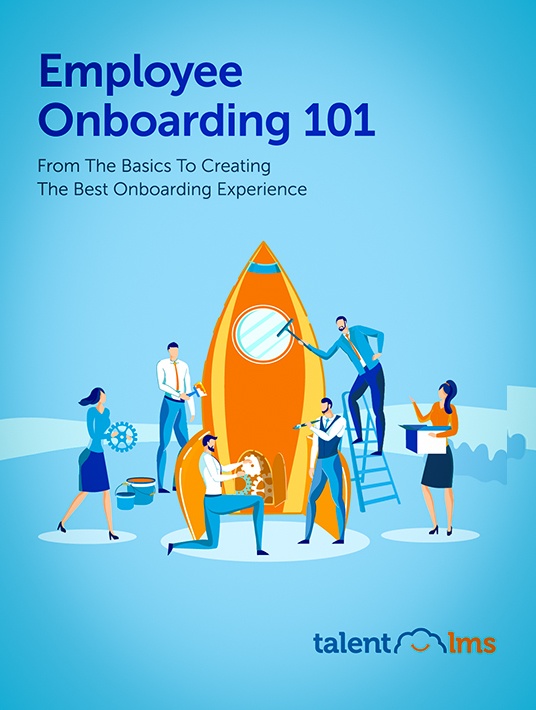Something Everyone Agrees On
There must be a reason why HR professionals emphasize the importance of employee onboarding. Recent employee onboarding statistics demonstrate that 83% of employees agree that an onboarding program would be useful. At the same time, though, only 32% of companies have a formal onboarding process in place.

These statistics indicate that most employers don’t know either how to create a formal onboarding process or why they should do so. This chapter focuses on the "why," discussing the importance of onboarding. You’ll discover the benefits for both your business and your employees, and the indirect cost of not building a formal employee onboarding program.
Reduced Time-To-Productivity
Employees who receive effective onboarding reach satisfactory levels of productivity 60% faster than those who don’t. This is one of the main objectives of onboarding that initiates a cascade of positive effects.
For the company, reduced time-to-productivity is excellent financial news. The more productive an employee is, the faster and better they perform their job duties. They make fewer mistakes, their work adheres to your standards, clients are happy, and your business remains profitable. The benefits for the employee are even greater. When a new employee starts meeting their goals and contributing meaningfully, they also begin to feel part of the team and not just "the new employee."
And that’s when their job starts feeling rewarding, and they find more motivation to step up their game.
Faster Integration Into The Company Culture
During onboarding, employees find out what your company is all about. They learn how you started and what the company mission and your work ethics are.
In practice, integrating into the company culture is mostly about connecting with other employees, though. The company story is just the foundation where it has all been built and provides some context regarding the principles that guide your workplace.
Companies that take steps to facilitate the adjustment to the company culture, achieve higher levels of engagement early on, and set the ground for more transparent and honest communication and stronger relationships among employees.
Lower Employee Turnover
Employees who don’t receive onboarding are more likely to think about leaving the company. Need we say more? Not deploying onboarding is a high-risk decision.
Onboarding is a decisive move toward increasing employee retention. Research has shown that onboarding improves retention by 82%. Additional research indicates that employees who have had a great onboarding experience are 69% more likely to stay with the company for 3 years. It’s easy to see how onboarding and employee turnover are linked.
Having an onboarding program in place shows that your company invests in employee education and is aware of the emotional stress a new job puts on a person. Your new hire feels welcome and appreciated. The future looks promising. Why would they return to another round of job interviews?
Less Stress For New Hires
When people talk about workplace stress, they usually refer to the stress that develops over time as a result of an overwhelming work environment. But the truth is that stress is inevitably present since day one. Or, better said, especially on day one. Everybody has felt the consequences of a foggy mind; stress affects productivity, cognitive capacity, and morale alike.
During a formal employee onboarding process, new hires receive continuous guidance, support, and feedback. They are less anxious about their performance or what will come next. When employees are relaxed, both their productivity and their ability to retain information improves because they are able to maintain their focus better. Less stress also means they’ll be in a better mood to socialize with coworkers. This makes the importance of employee onboarding quite apparent.
Improved Talent Attraction
One of the many advantages of living in an internet-dependent era is that nothing is hidden under the sun—good or bad. If your new hires are impressed by their onboarding experience, they will spread the word.
Top talent is always looking for companies that invest in employee training. And top companies are always looking for ambitious and knowledge-thirsty employees. So, it’s a real win-win situation.
The good thing about word-of-mouth advertising is that it’s the most reliable method of promoting a business. In a market where open job positions outnumber quality candidates, what your employees have to say about you can determine whether top candidates will choose you over another employer.
The Great Importance Of Employee Onboarding
There’s a lot to gain from creating a fullfledged onboarding program. New employees feel happier, are more productive, and acclimate faster. Plus, they are more likely to stay with the company for the long haul and recommend you to their network. The only question now is how you can design an effective employee onboarding experience so that both parties reap the benefits. To answer that question, download the eBook Employee Onboarding 101: From The Basics To Creating The Best Onboarding Experience.


